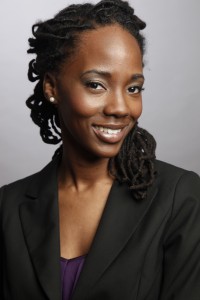Career expert Peter Weddle advises job seekers to always work on their career fitness. We expect it of ourselves and so do our employers. Just because new professionals are no longer in school, doesn’t mean you can’t take some time this fall to go back to PR school and learn more about the burgeoning industry to which we belong.
To be a successful public relations practitioner you need to know everything from social media, search engine optimization, reputation management, marketing and more. But how can you be all things to all people?
The Internet is a never-ending resource for newsletters and blogs to help you (and to help build Klout scores!). Many industry experts will place their presentations on Slideshare. The following are my favorite newsletters and experts to follow:
- Lee Odden (TopRank Online Marketing) – SEO is not just about finding the keywords that yield the most traffic. SEO is about using relevant content to attract your specific audience. Temper this in with social media and its rapidly changing venue and you need expert advice to stay ahead of the curve and to keep impressing the boss. TopRank Online Marketing produces an e-newsletter chock full of guidance and success stories written by Odden. When your employer asks you to write web content or an SEO-optimized press release, Odden is the man you want to follow on Twitter. Subscribe to TopRank’s e-newsletter, and your knowledge will soar.
- Deirdre Breakenridge – If you haven’t been asked already, it’s only a matter of time before your employer expects you to write a social media plan. You will need to know how to set goals and use the best tactics (measurable ones) to best help you meet those goals. Following Breakenridge on Twitter and seeing what she’s pinning on Pinterest is a great start. When you are on a job interview, you want to show your potential boss you can hit the ground running. You may even consider doing a mini social media plan for the interview. You will stand above the crowd.
- Peter Weddle and Weddle’s E-newsletter – To survive in the workforce today, being qualified is not enough. You need to be what Weddle calls a “career activist”. A recruiter, HR consultant and business CEO turned author and commentator, weddle knows what it takes to keep growing in the field. His favorite term is “work strong”. Subscribe to his e-newsletter and you’ll not only learn as a job seeker, you’ll gain knowledge from an employer perspective as well. One of his many books, Recognizing Richard Rabbit will change how you think about your current and future career.
- Recruiting Trends – My dear friend and expert recruiter Sandy Charet of Charet & Associates always mentions the very difficult job recruiters have. They not only have to review resumes sent their way, but also need to constantly comb through LinkedIn to find the best “passive job seekers”. They are completely overworked and need to process a voluminous number of job orders within superhuman deadlines. A recent study showed that recruiters decide within six seconds whether a resume winds up in the “yes” or “no” pile. Therefore, it’s key to understand where recruiters are coming from. If you understand the pressure they are under, it will change how you approach them when following up after they have sent you on a job interview.
- FINS Newsletter – While the advice may not be tailored directly to public relations, there’s a multitude of career and resume advice on this Dow Jones career and employment website. Their topics have universal appeal regardless of your career specialty. It is one of the best places to read about writing your career story, the 25 toughest companies for interviews and facing feedback from your employer.
- Mashable – If you are just beginning in your career, you want to know who the heavy hitters are in making news and headlines. Mashable not only covers major technology trendsetters, it will help you show potential employers that you’re fully up-to-date understanding the challenges in the business world.
While the list of resources is always growing, consider following these experts:
- Eric Schwartzman – With Schwartzman, you learn about social media from A to Z. His knowledge will take you from the beginning of setting up your Twitter account to blogging and expertly tagging your digital content.
- Dawn Edmiston – Recruiters not only want to know about your resume – they will research your professional online presence. Dawn is an expert resource. The most critical resource you have is your own branding. Dawn will help you take ownership of this.
- Sandy Charet – We all know how important LinkedIn is to recruiters. You want to present the most professional and complete profile possible. Charet knows all the ins and outs of working with LinkedIn.
- Brian Solis – His conversation prism will graphically show you all the facets to social media. When setting up a social media plan, you need to know which tactics will work the best. However, how many of us really know all the forms of social media out there? Solis gives the best starting point by displaying all or at least most of the available forms.
- Andrea Nierenberg –Networking is key to your career survival, but how do you approach someone? What do you do if you’re an introvert? How do I really use the “give to get” principle? Nierenberg’s thoughts and insights will help you network with results.
We also hope that you will read the 70+ articles on PRSA Jobcenter. Having a full range of job advice and resources will ensure a very long and very happy career.
Richard Spector is the manager of client services at PRSA.


